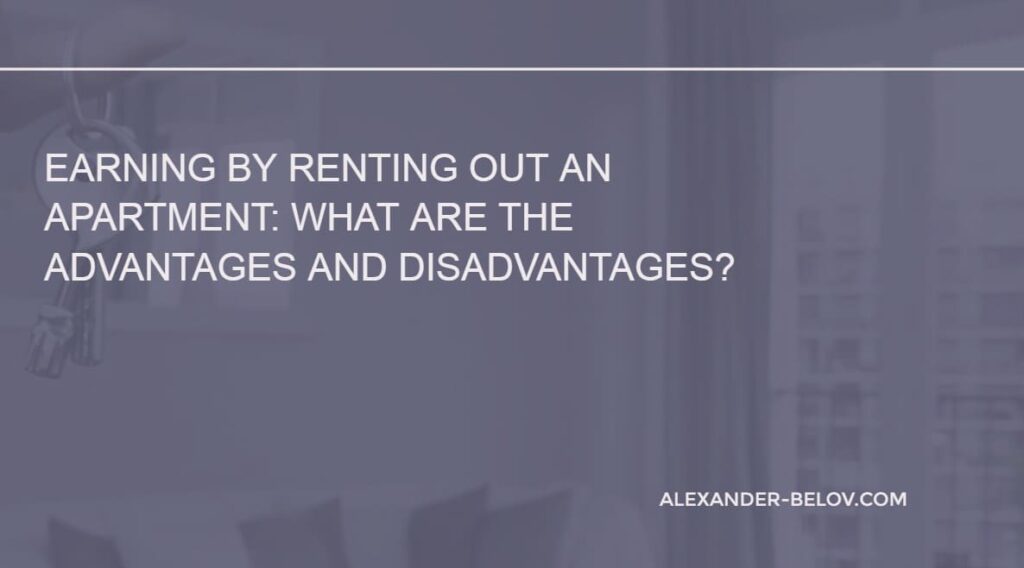Earning by Renting out an Apartment: what are the advantages and disadvantages?
Renting out an apartment is a popular way of earning additional income. This practice is becoming increasingly common in modern society, where more and more people are looking for opportunities to improve their financial situation. In this article, we will discuss the advantages and disadvantages of earning by renting out an apartment, as well as the process of selecting a tenant and signing a contract.

Advantages of renting out an apartment:
One of the main advantages of renting out an apartment is the opportunity to earn passive income. By renting out your apartment, you can receive regular rental payments that will consistently be deposited into your bank account. This can serve as an additional source of income, helping to cover expenses such as mortgage or other loans.
It is also important to note that renting out an apartment is an excellent investment decision. Investing in real estate can yield significant profits in the future, especially if the real estate market is stable or growing.
| Advantages | Disadvantages |
|---|---|
| Additional income | Possibility of renting to unreliable tenants |
| Potential increase in rental payments | Risks of damage or loss of property |
| Passive income | Need to manage and maintain the apartment |
| Potential tax benefits | Risk of tenant default |
| Growth in property value (residential real estate is a reliable asset. Traditionally, real estate prices tend to rise, protecting against inflation) | Potential conflicts with neighbors or tenants |
Tenant selection process:
A crucial step in renting out a property is selecting the right tenant. To avoid future issues, it is important to conduct a thorough screening of potential tenants. This includes requesting documents such as a passport, employment history, income statements, and obtaining references from previous landlords.
Such an approach will help minimize the risk of potential problems with tenants, such as non-payment of rent or property damage.
Contract signing and inventory report:
It is vital to sign a rental agreement and prepare a detailed inventory report before handing over the property for rent. The rental agreement will define the rights and responsibilities of both the tenant and the landlord. The inventory report will document the condition of the property and its contents, which will be useful in case of disputes or damages.
While these procedures may require time and money, they are necessary to protect the interests of the landlord and minimize potential risks.
Recommendations and important points in a lease agreement when renting out an apartment
| Recommendations | What should be included in the contract and inventory |
|---|---|
| Thoroughly screen potential tenants | Rental conditions (term, cost, rules of residence) |
| Properly draft the rental agreement | Amount and method of rent payment |
| Request a deposit or guarantee of payment ability | Tenant’s responsibilities for maintaining the apartment |
| Set restrictions on the use of the apartment | Entry and exit rules, liability of parties |
| Hire professional property managers (if no experience) | Inventory and condition report upon move-in |
| Regularly inspect and assess the condition of the apartment | Rules for apartment maintenance and return of property |
Conclusion:
Renting out a flat has its advantages and disadvantages. It can be a source of stable passive income and an investment decision. However, it is necessary to consider the risks associated with choosing a tenant and managing the property.
The viability of earning from renting out a flat depends on individual circumstances and preferences. Therefore, before making a decision, it is important to carefully weigh all its aspects and consider the possible risks and benefits.



